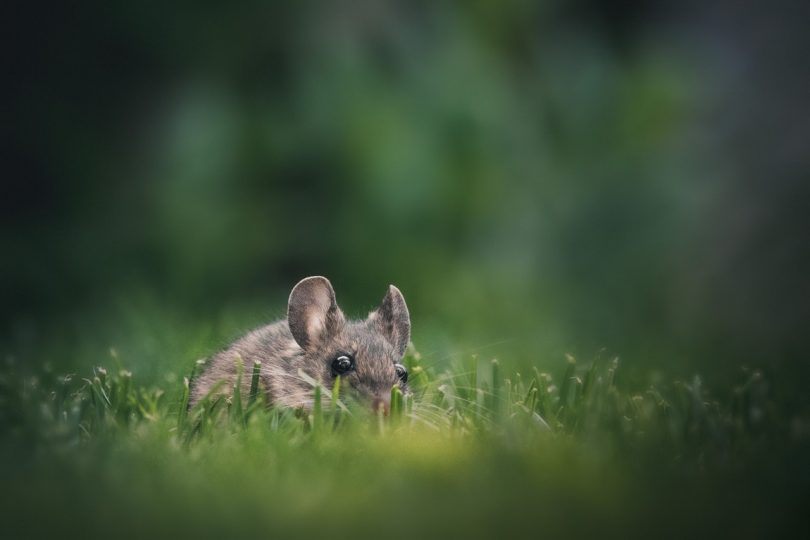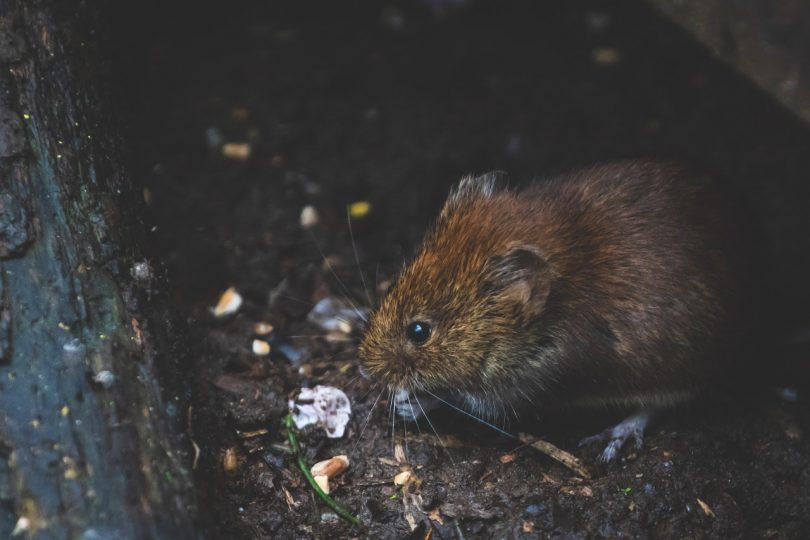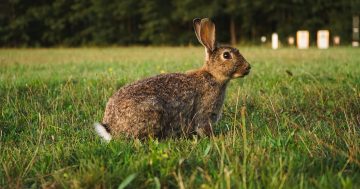
The symptoms of mouse phobia, or musophobia, typically include extreme anxiety, dread and anything associated with panic such as shortness of breath, rapid breathing, irregular heartbeat, sweating, nausea, an inability to articulate words or sentences, dry mouth and shaking. Photo: Supplied.
The current mice plague in parts of NSW is taking its toll on many rural and regional individuals and communities, with some people simply unable to cope with the magnitude of rodent numbers.
Hundreds of thousands of mice have been plaguing parts of NSW since last year’s harvest, with farmers, householders and businesspeople affected.
Amid images of drowned mice being plucked from water tanks, and thousands of the rodents streaming through sheds and across roads, there’s also the reality of how to deal with mice when they enter the home, which can be overwhelming to some residents as the day and night scampering around living areas leaves a trail of faeces.
Then there’s the farmers, whose future depends on grain and feed storage, are now in the midst of sowing their next crops. Then spare a thought for those businesses – supermarkets, retail food outlets and clothing stores – who are fending off mice as they charge through regional towns.

Associate Professor Gene Hodgins says ongoing stress and anxiety around the current mouse plague in NSW can be very draining for people. Photo: Supplied.
A Wagga Wagga academic advises there are ways to cope, and the first distinction for people to make is whether you have a mouse phobia or a strong dislike for the critters.
Associate Professor Gene Hodgins, from Charles Sturt University’s School of Psychology, says a phobia is a disproportionate and dysfunctional fear.
The symptoms of mouse phobia, or musophobia, typically include extreme anxiety, dread and anything associated with panic such as shortness of breath, rapid breathing, irregular heartbeat, sweating, nausea, inability to articulate words or sentences, dry mouth and shaking.
“It is similar to what people experience if they are phobic about heights or enclosed spaces,” says Associate Professor Hodgins. “So they’d be very challenged by the recent mice plague.”
Associate Professor Hodgins says mouse phobias would be represented in just a small segment of the population.
“Even if you don’t have a phobia and just get anxious, it’s important to remember that moderate levels of anxiety can be good for us because it motivates us to do something to improve a situation,” he says.
It’s the long-term implications of the enduring plague that he’s concerned about.
Associate Professor Hodgins says there’s an important parallel between the current mice plague and other disasters, such as bushfires, floods and earthquakes. The events are stressful, but there are also the ongoing impacts that can get you down.
“There are often related financial issues for farmers, shopkeepers and other workers. There are also knock-on effects which can impact on sleep, for example, which compounds the stress,” he says.
“When stress and anxiety go on day after day, week after week, it can wear you down and become very draining, and that’s a problem in itself.”

The current mouse plague is impacting much of rural and regional NSW, with some towns overrun with the rodents. Photo: Supplied.
He says chronic stress is relentless, with psychological studies over many decades showing it can make you more susceptible to illnesses, such as colds and headaches.
“Reminders of the event linger, and people take different trajectories following a disaster such as a mice plague,” says Associate Professor Hodgins. “Some people don’t experience major negative effects and a lot of the population will be quite resilient.
“It happens with all types of stressful events. You can get through on adrenalin and coping mechanisms, but then sometimes later events trigger a reaction.”
This has been seen most recently with residents living in bushfire affected areas, where the smell of smoke may trigger anxiety.
Associate Professor Hodgins said many reactions a person may have are OK, but if they persist and bring you down, seek some assistance.
“Social support is very important to buffer any stressful reaction,” he says. “It helps people, provides a break and helps us cope, as we witnessed and know from other disasters such as drought, bushfires and floods.”
Another useful coping skill he suggests is being aware of our self-talk, or what we are saying to ourselves about the mice in our head. Is it unhelpful or unrealistic? And if so, can we try to think more usefully and realistically?
He says important things such as exercise, eating properly and sleeping well will help reduce anxiety because the mind and the body ‘talk’ to each other.
Associate Professor Hodgins says it is also important to be aware of the impact of stressful events on children.
“Let kids know it’s OK for them to feel uncomfortable,” he says. “Honesty is always the best policy. You don’t want to hide too much from kids, but they don’t need all the details.”
He says parents who notice a change in their child’s mood or behaviour should sit down and talk with them about their concerns. Tell them it’s OK to feel the way they do, and that they can talk with you about things any time.
“We know early intervention is important when it comes to anxiety and depression,” says Associate Professor Hodgins.
Original Article published by Edwina Mason on About Regional.













